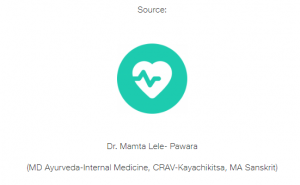[the_ad id=”6076″]
October is the Health Literacy Month. What better time than to plunge into the realm of health literacy in India? Let’s first see the basics:
What is Health Literacy?
Health literacy, defined as the capacity to obtain, process, and understand basic health information and services needed to make appropriate health decisions, is an increasingly vital aspect of social, economic, and health development. The primary goal is to improve the health and well-being of individuals. This study underscores health literacy as a fundamental principle in achieving better public health outcomes in India. It delves into the concept of health literacy, its significance, the objectives of the study, challenges associated with low health literacy, and strategies to enhance health literacy, ultimately improving public health.
How often do we need health literacy?
Every day, people face life-altering health decisions, often outside clinical settings. Whether it’s at the grocery store, workplace, or in conversations with healthcare providers, individuals need accessible and comprehensible health information to make informed choices. Health literacy involves finding, evaluating, and analysing health information, skills crucial for making sound health decisions.
Understanding Health Literacy:
Health literacy encompasses skills, knowledge, and expectations regarding health information and services. It affects people across age, ethnicity, income, and education levels, with significant disparities in lower socioeconomic conditions. Health literacy doesn’t merely rely on individual skills; it also depends on how organisations present health information and services. Complex and technical health information can hinder comprehension for individuals, regardless of their educational background.
How is Health Literacy different from general literacy?
Health literacy is intertwined with, but distinct from, general literacy. While literacy involves reading, writing, math, and speech skills, health literacy encompasses knowledge related to the body, healthy behaviours, and the healthcare system. Various factors, including language, communication abilities, socioeconomic status, and cultural background, influence health literacy.
Health information comes from diverse sources, such as friends, media, healthcare professionals, and the internet. Often, these sources provide conflicting or incomplete information, creating a complex environment for individuals to navigate.
Importance of Health Literacy:
Health literacy entails the ability to obtain, read, understand, and use healthcare information to make informed decisions and follow treatment instructions. It plays a crucial role in disease prevention, health protection, and effective health management. Regardless of their education level, individuals must access and utilize health information and services throughout their lives.
Low health literacy is associated with poorer health outcomes, reduced engagement with health services, higher hospital readmission rates, and difficulties in understanding medication instructions. Conversely, higher health literacy levels foster patient involvement in shared decision-making and contribute to patient-centred care. Improving health literacy is essential to empower individuals to take an active role in their health and reduce health inequalities among various demographic groups.
Challenges in Promoting Health Literacy:
- Illiteracy: A significant portion of the Indian population lacks basic literacy skills, making it challenging to convey accurate health information, even in regional languages.
- Poverty: High levels of poverty hinder access to proper nutrition and healthcare, limiting people’s capacity to prioritize health.
- Inequality and Discrimination: Gender disparities and discrimination continue to affect health literacy, especially among women.
- Distrust of the Medical System: Inadequate healthcare infrastructure and services lead to a reliance on local practitioners, contributing to limited health literacy.
Approaches to Improve Health Literacy:
- User-Centered Design: Applying health literacy design principles and standards to health information and services enhances accessibility and comprehension.
- Universal Precautions Approach: Adopting a universal precautions approach ensures clear communication with everyone, regardless of their perceived health literacy skills.
- Targeting and Tailoring Communication: Tailoring communication to specific groups, including those with limited literacy skills, improves self-management and health outcomes.
- Making Organizational Changes: Assessing organizational strengths and weaknesses is vital for improving health literacy.
- Developing a Society-wide Health Response: Addressing health literacy requires changes in healthcare communication, information clarity, cultural targeting, and support for lifelong learning.
Role of Digital Health in improving health literacy:
Utilizing digital health solutions can significantly alleviate health literacy challenges by providing accessible, user-friendly, and easily understandable health information through digital platforms and applications. These digital tools can incorporate multimedia formats, such as videos and interactive tutorials, to simplify complex medical concepts and treatment instructions. Moreover, digital health allows for personalized health information delivery, catering to individuals’ unique literacy levels and needs, thereby empowering them to make informed health decisions.
Conclusion:
Low health literacy poses a significant threat to the health and well-being of Indians, exacerbating healthcare challenges in the country. A health-literate India would foster a society where reliable health information is accessible to all, enabling individuals to make informed choices about their health. To achieve this, health literacy must be integrated into education, healthcare, media, and public health initiatives. Improving health literacy is not just a health imperative but a crucial step towards a more prosperous and equitable India.

